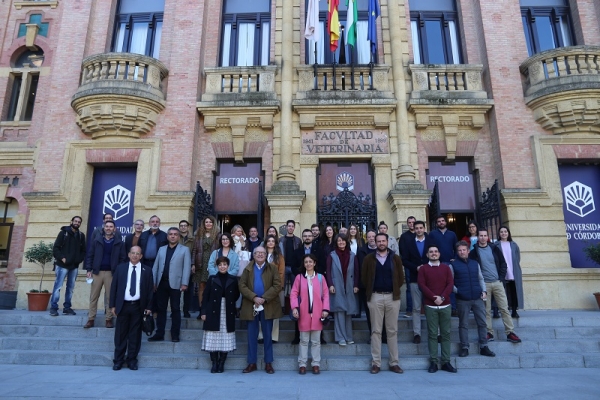The olive sector is one of the most important in the Mediterranean basin, both economically and socially. The appearance of diseases such as Xylella Fastidiosa, and the effects of climate change, can pose a threat to this vital crop. Advanced as a solution to this challenge is the use of little-known varieties, and/or the obtaining of new ones that are resistant to pests and diseases, and resilient in response to abiotic stresses from climate change, and that, in addition,boast optimal productivity and yield high-quality oils.
In terms of genetic improvement, to obtain a variety resistant to a disease, but that is a good producer, or that has a high oil content, it is necessary to cross a variety that is known to be resistant to the disease in question with another one having a high oil content. To do this one must know the varieties in depth, and this is where the problem lies: only 5% of the more than 1,200 varieties of olives in the world are exploited, so there are many yet to be studied that may hold the key to cope with illness or stress.
Against this backdrop the GEN4OLIVE project was undertaken, funded by the European Union within the Horizon 2020 Call and coordinated at the University of Córdoba by Concepción Muñoz Diez, a professor in the María de Maeztu Unit of Excellence / Department of Agronomy (DAUCO). GEN4OLIVE studies techniques and knowledge about traditional varieties so that this information is all ready to be used. "It's aboutgetting our ducks in a row so that in the future it will be easier and faster to obtain new varieties of olive trees that can handle climate change, pests and diseases, etc." explained UCO professor Concepción Muñoz, the project's coordinator.
A consortium of 16 partners from the Mediterranean Arc, including universities, research centres and SMEs from 7 different countries, coordinated by the UCO, will work for 4 years with the aim of facilitating the genetic enhancement of olive trees to maintain the stability of the olive sector.
During the first year of work a common evaluation protocol was established to homogeneously analyse 500 Mediterranean olive varieties, thereby making them comparable. This protocol features analysis of the responses to abiotic and biotic stresses by each of the varieties analysed, and also their agronomic characteristics, such as their productivity and oil quality. The next step will be to evaluate those 500 varieties obtained from the 5 olive germplasm banks participating in the project: Cordoba's World Bank of Olive Tree Germplasm, together with the banks of Morocco, Turkey, Greece and Italy, which contribute many local varieties.
Regarding new technologies, new improvement tools will also be implemented and new genetic markers developed that make it possible to select suitable plants in a few months, without having to wait for them to grow.
A map of wild varieties
Although the heart of the project is the evaluation of these cultivated varieties, another objective is to create a map of wild olive trees; that is, an evaluation and prospecting of these relatives of the cultivated olive tree, and to collect seeds that document their genetic diversity, which can then be stored at an institution capable of caring for and regenerating the collection, thereby showcasing the genetic diversity of the species.
In tune with the sector
The sector's involvement in the project is essential to be able to respond to its needs. Hence, at the beginning of the initiative farmers and nursery operators were consulted about what characteristics they considered most important in the new varieties, and what problems they need to solve. In addition, in order to promote joint work, "two cascading calls were organized that seek to encourage companies to get involved in olive improvement programs and the development of new technologies to accelerate the genetic improvement process through the financing of projects devised by companies," explained UCO researcher and project manager Hristofor Miho.
The project also analyses the variety's interaction with the environment, for this using 30 varieties that are common at the 5 germplasm banks located in different countries of the Mediterranean Arc. This makes it possible to compare how each variety behaves depending on each country's climatic conditions.
Finally, all the results of the project and the genetic map of the varieties will be available on a computer application that allows for the recognition of varieties so that farmers, nursery operators and other interested parties can access the catalogue of information generated by GEN4OLIVE. Thus, through transfer, the genetic map of the Mediterranean olive tree will help to solve present and future problems facing the species.
MOBILIZATION OF OLIVE GENRES THROUGH PRE-BREEDING ACTIVITIES TO FACE THE FUTURE CHALLENGES AND DEVELOPMENT OF AN INTELLIGENT INTERFACE TO ENSURE A FRIENDLY INFORMATION AVAILABILITY FOR END USERS (H2020-IA-SFS-2020-101000427).


